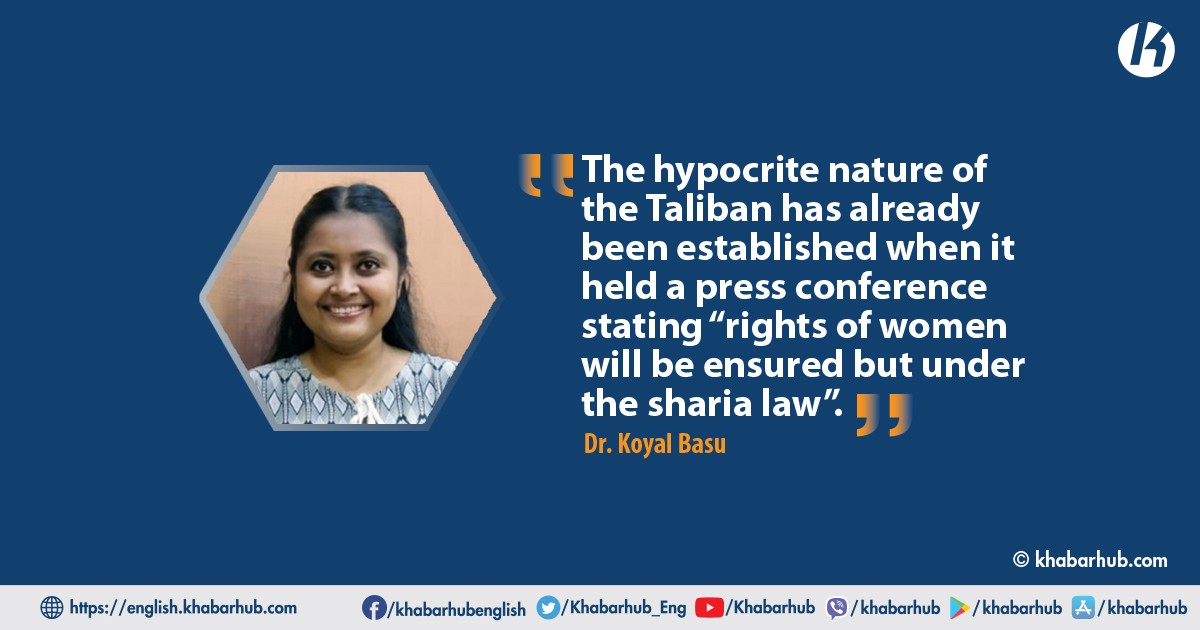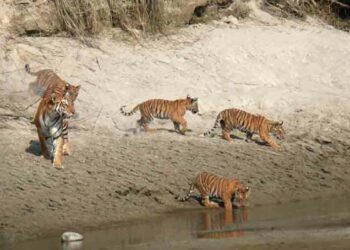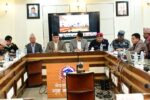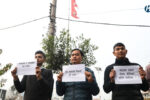The international world order stands at a cusp—on one hand, there is the Western perception of Asia and its rise and on the other, resurgent Asia, as seen through the prism of the rise of two very powerful nations; India and China.
In the visibly remarkable and uneven level playing field in the 21st-century international order, India is desperately trying to gain a foothold with changing contours of friendship and co-operation in the region.
India’s democratic disposition and its proclivity for maintaining human rights have come under scrutiny and this does not speak very well of India’s international image and reputation.
As if there was not enough trouble on the ground, India’s immediate neighbors are leaving India in the lurch on many issues and distancing themselves from the country.
India has been selective and cautious when it comes to criticizing overtly on democratic order and human rights violations of other nations of South Asia.
At home, it faces the flak for stifling democratic dissent and overturning India’s long-cherished constitutional guarantee of secularism strongly upheld by the makers of the constitution.
In the present multilateral world order, it’s therefore very significant to follow what path India has set itself to tread upon.
In the wake of the Covid-19 pandemic, India witnessed the full-fledged Delhi riots in February 2020 which further aggravated the country’s dismal record of human rights abuses.
Will it be able to maintain the delicate balance of putting its own house in order as far as democracy and human rights are concerned as well as be able to walk the tightrope of criticizing its neighbors in South Asia without offending them?
We know a stable democratic environment can ensure a peaceful humanitarian order. How does India perceive its South Asian neighbors in crises? These are pertinent questions this paper aims to address.
Though it had always taken an absolutist stance in its sovereignty question, India has never deviated from the ideals of democratic governance reflected in the exercise of the voting rights of its citizens.
After attaining independence in 1947, as a post-colonial society, India has had record participation in its democratic exercise of conducting national elections.
Except for a brief interlude, which is perceived as an aberration under the leadership of the late Prime Minister Indira Gandhi when an emergency was declared, India had never given up on democracy.
The rising authoritarianism around India as seen in the civilian-military rule in Pakistan, social unrest in Sri Lanka, dwindling democracy in Nepal and monarchical rule in Bhutan, imbalance and disturbances in Afghanistan and stifling democratic dissent in Myanmar; India has shone for its civic space, still remaining independent judiciary and yet to surrender civil society in the face of threats and harassment.
When it comes to human rights violations in its neighborhood, India has followed a mixed approach of cautious optimism and silence in few cases, while in others it has been interventionist.
This sets India apart from other countries of South Asia as the central focus of discussion.
Yet there has been democratic backsliding with nationwide attacks on activists, human rights defenders and civil society persons.
The discriminatory and draconian law, the Unlawful Activities Prevention Act has been virulent and permits warrantless detentions.
Under its grip came prominent intellectuals since 2018 and the Modi government hardly did anything to repeal it.
In the wake of the Covid-19 pandemic, India witnessed the full-fledged Delhi riots in February 2020 which further aggravated the country’s dismal record of human rights abuses.
Most scholars now are referring to democratic backsliding, a new concept that means the erosion of democracy legally.
Democracies are being let down by elected representatives themselves. This is the central claim of one of the most widely read books on democracy at present, How Democracies Die.
The book is co-authored by Steven Levitsky and Daniel Ziblatt who argue that many governments attempt to subvert democracy are legal and either they are approved by the legislatures or accepted by the courts. This is exactly what is happening in India where politicians are letting down democratic governance.
When it comes to human rights violations in its neighborhood, India has followed a mixed approach of cautious optimism and silence in few cases, while in others it has been interventionist.
An example of the interventionist approach of India with regard to human rights and democracy is with regard to Bhutan.
In the 1990s, India supported Bhutan’s ethnic cleansing of Nepalese, but it imposed economic sanctions against Bhutan just prior to the Bhutan National Assembly elections in July 2013.
This led to the victory of the opposition People’s Democratic Party which swore allegiance to India. Indian economic sanctions against Bhutan were widely criticized in Indian media.
Keeping in mind the health of Indian democracy, the Swedish Varieties of Democracy ‘9V-Dem) Project March 2020 report on democracy stated that, “India is on the verge of losing its status as a democracy due to the severely shrinking of space for the media, civil society and the opposition under Prime Minister Narendra Modi’s government.”
The US withdrawal from Afghanistan and the consequent rise of Talibanism have engendered violence have renewed tensions on restricting women’s freedom in Afghanistan.
Besides, there has been a series of bomb blasts in schools in Afghanistan which is worrisome for the peace and stability of Afghanistan.
At present, as the Taliban has claimed to capture 85 percent of Afghan territory, it’s tough for India to bring the latter to the negotiating table.
India has always shied away from criticizing or condemning its neighbors for grave human rights violations because this approach is attuned to India’s aspirations to be a non-imperialist reformed role model in South Asia as well as the world. Its diplomatic priorities are different than what has been perceived by the Western powers.
The New York Times once remarked: “Morality apart, the logic that governs a human rights policy is national interest; Claims to the disinterested espousal of human rights everywhere are essentially claiming to superior morality in diplomacy.
Inherently untenable, they end up by reducing human rights to an instrument of policy, to the harm of both a good foreign policy and the advancement of human rights.”
Keeping in mind the health of Indian democracy, the Swedish Varieties of Democracy ‘9V-Dem) Project March 2020 report on democracy stated that, “India is on the verge of losing its status as a democracy due to the severely shrinking of space for the media, civil society and the opposition under Prime Minister Narendra Modi’s government.”
The EIU Democracy Index puts India in the category of “Flawed Democracy” (categorization notably shared by the US)
Conclusion
Today’s international order is an uneven playing field. There are unevenly distributed rights, obligations and burdens.
As Adom Getachew said in his book Worldmaking after Empire, “India, too, is a victim of circumstances and therefore it cannot leverage its power and political clout in front of Big Powers.
It’s easier to stand up for democratic values in Somalia or Syria than respond to an immediate tricky neighborhood.
India needs to continue trust-building in South Asia and in doing so should avoid paranoia over its neighbors dealing with China.”
(Dr. Koyel Basu is an Assistant Professor at the Department of Political Science, Jangipur College, India)









Comment